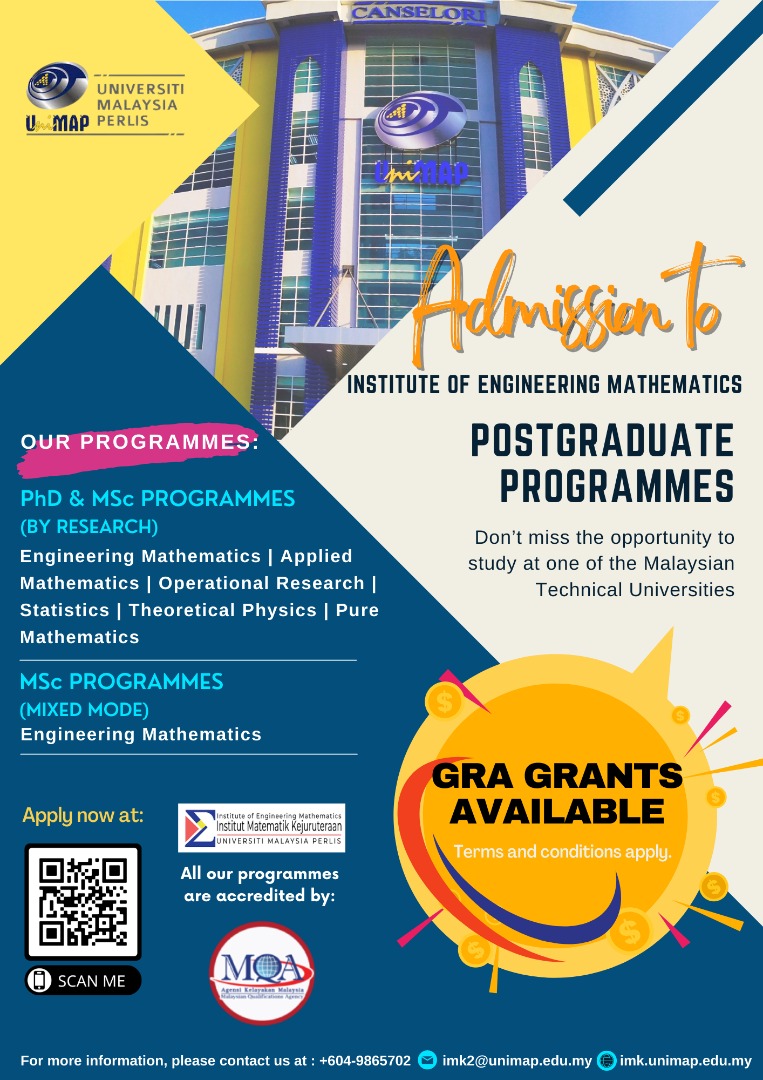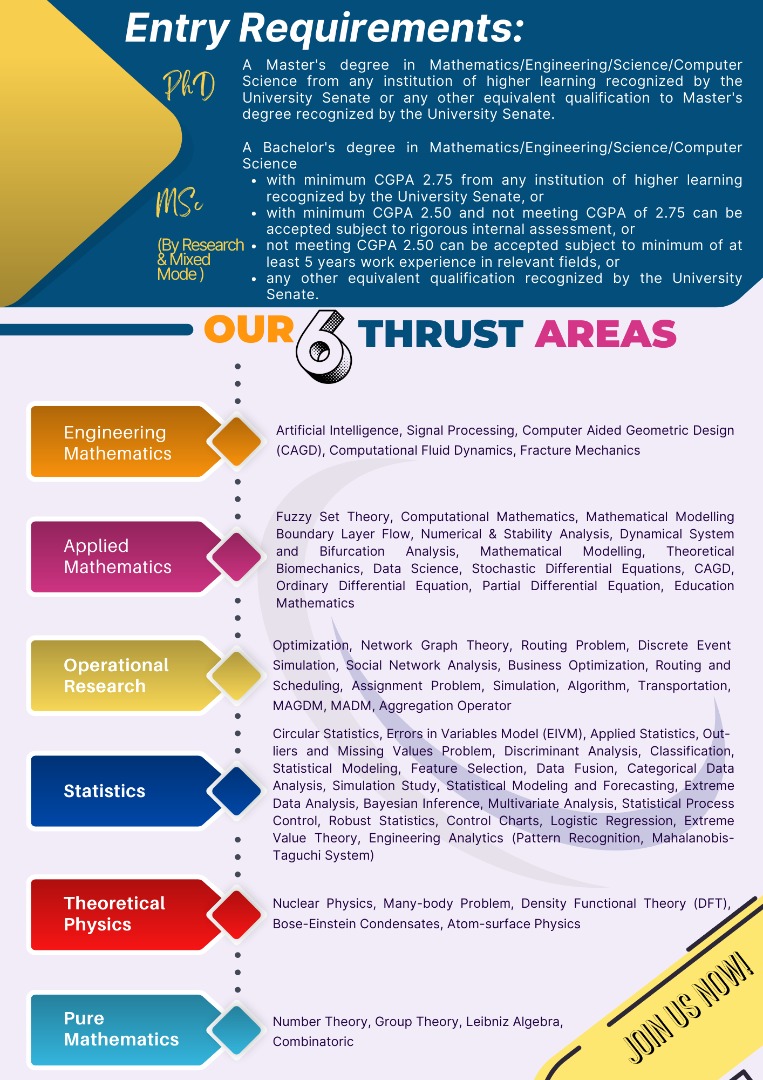General Info
POSTGRADUATE ACADEMIC PROGRAMMES
The postgraduate programmes offered by IMK prepare students for careers in research, industry as well as academia. The programmes offer are as follows:
- Doctor of Philosophy (Ph.D) (Research Mode)
- Master of Science (M.Sc.)(Research Mode)
- Master of Science (M.Sc.) Engineering Mathematics (Mixed Mode)
OBJECTIVES
- Prepare graduates to have the knowledge and competency in careers and related to engineering mathematics.
- Prepare graduates to become leaders in fields related to engineering mathematics.
- Prepare graduates to pursue higher education in engineering mathematics or other professional fields.
ADMISSION REQUIREMENTS
| Ph.D |
A Master's degree in Mathematics / Engineering / Science / Computer Science from any of the institution of higher learning recognized by the University Senate or any other equivalent qualification to Master's degree recognized by the University Senate. |
| Master by Research & Mixed Mode |
|
DURATION CANDIDATURE
|
PROGRAMME |
FULL TIME |
PART TIME |
||
|
Min (month) |
Max (month) |
Min (month) |
Max (month) |
|
|
Ph.D (Research Mode) |
24 |
60 |
36 |
84 |
|
M.Sc. (Research Mode) |
12 |
36 |
24 |
60 |
|
M.Sc. Engineering Mathematics (Mixed Mode) |
12 |
36 |
24 |
60 |
POTENTIAL RESEARCH AREA
A wide- ranging expertise of IMK's researchers is one of the strengths of its postgraduate programmes. Areas in which our researchers are particularly active include:
|
Research Area |
Description |
|
Pure Mathematics |
Fuzzy mathematics, algebra and analysis. |
|
Applied Mathematics |
Theoretical biomechanics, numerical analysis, fluid mechanics, computer aided geometric design, state estimation and applications. |
|
Engineering Mathematics |
Signal and image processing, pattern recognition, artificial neural network, fuzzy logic. |
|
Operational research |
Mathematical modelling and fuzzy modelling for decision making problems, network graph theory, discrete event simulation, algorithm and optimization problems, multiple criterion decision making. |
|
Statistics |
Directional statistics, outliers, medical and health statistics, psychometric, Bayesian inference, extreme value analysis, applied multivariate statistics, design of experiments. |
|
Theoretical Physics |
Nuclear many body problem, Bose-Einstein condensates, nuclear structure calculation, Hartree-Fock analysis and numerical methods. |



.png)




